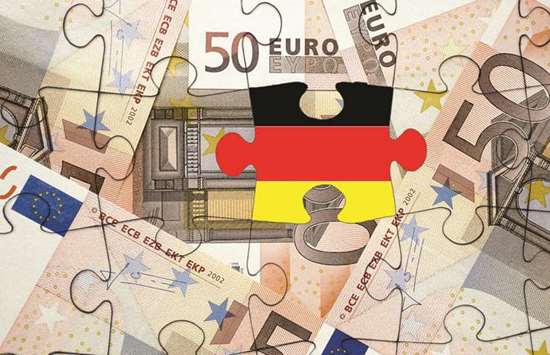To be sure, Germany’s economy could benefit from policy changes that would also reduce the current-account surplus. But such adjustments make sense only if guided by sober reasoning – and by leaders who accept the mutually beneficial nature of international trade, allow economic adjustment to occur over time, and reject the illusion that an economy is akin to a large company.
International trade is not a zero-sum game. A current-account deficit is not a straightforward indication of “a bad deal,” and a surplus is not necessarily a cause for celebration. Instead, they are the outcomes of myriad private deals, from which the parties involved expect to reap benefits.
Yet US President Donald Trump’s administration and (less pugnaciously) the European Commission continue to push the narrative that Germany’s high surplus must indicate a macroeconomic imbalance caused by low aggregate demand, relative to supply. Trump, displaying his lack of understanding of the economic concepts involved in measuring current-account balances – went so far as to say that “the Germans are bad, very bad,” because of “the millions of cars they are selling to the US.”
The reality is that, for there to be a macroeconomic imbalance, aggregate demand would have to deviate significantly from aggregate supply at a given price level. Excess supply would be reflected either in heavily underutilised production capacity or in dramatic declines in both prices and price expectations. None of this is currently evident in Germany.
On the contrary, German production capacity is over-utilised. Employment levels are high, and unemployment is decreasing. Prices are rising, somewhat, and core inflation rates have been positive for years. Given this, any intervention aimed at stimulating demand – the obvious remedy, according to the Trump narrative – would hardly make sense.
There are more problems with the simplistic narrative being pushed by Germany’s Western partners. A current-account surplus is often interpreted as a sign of an intentionally undervalued currency, trade barriers, or the dumping of export goods. But the German economy is characterised by relatively low trade barriers; wage-setting is largely independent of politics; and monetary policy is set by the European Central Bank, not the German government.
Rather than such persistent factors, it seems that temporary forces may bear much of the blame for Germany’s high current-account surplus. Most important, the ECB’s expansionary monetary policy, while arguably indispensable to fending off the euro crisis, has driven down the euro’s value; the corresponding improvement in price competitiveness since mid-2014 accounted for at least one percentage point of Germany’s current-account surplus in 2016. The dramatic decline in oil prices between 2014 and 2016 is associated with an increase of another two percentage points, with demographic shifts contributing two more.
An examination of net borrowing and lending by Germany’s economic sectors yields another explanation for the country’s high external surplus. The German corporate sector is recording increasing capital ratios, mainly owing to tax factors and the creation of risk buffers in response to both the 2008 global financial crisis and the eurozone crisis that erupted two years later. Not surprisingly, this rise in corporate savings has been accompanied by stepped-up investment abroad.
Germany’s public finances have also improved in recent years, and households have undergone significant consolidation to deal with the large amounts of debt that resulted from the real-estate bubble of the late 1990s. Most of these influences – and the contribution they make to the current-account surplus – are bound to vanish over time.
The final economic truth that Trump, in particular, must recognise is that national economies cannot be managed like large firms. The high level of abstraction in macroeconomic analysis often obscures the fact that aggregate outcomes are the result of an enormous number of discretionary decisions by independent actors. Policymakers cannot manipulate such outcomes at will. All they can do is shape the environment in which individual decision-makers operate, in an attempt to guide the macroeconomic aggregate, while limiting unintended side effects.
Ultimately, a current-account surplus should be understood as a symptom of underlying developments, not as a target for economic policy. In Germany’s case, the goal shouldn’t be to address the current-account balance for the sake of it, but rather to increase the level of return on investment inside Germany.
Such measures could include, for example, pursuing an energy transition guided by economic principles, corporate-tax reforms that support funding neutrality, and the deregulation of the cosseted service sector. Higher public investment could play a positive role as well, though it should be primarily at the expense of public consumption.
Such a policy package could boost Germany’s potential growth, while also reducing the current-account surplus. That’s a deal that even Trump could get behind. - Project Syndicate
*Christoph M Schmidt is Chairman of the German Council of Economic Experts and President of the RWI – Leibniz Institute for Economic Research, one of Germany’s leading economic research institutes.

